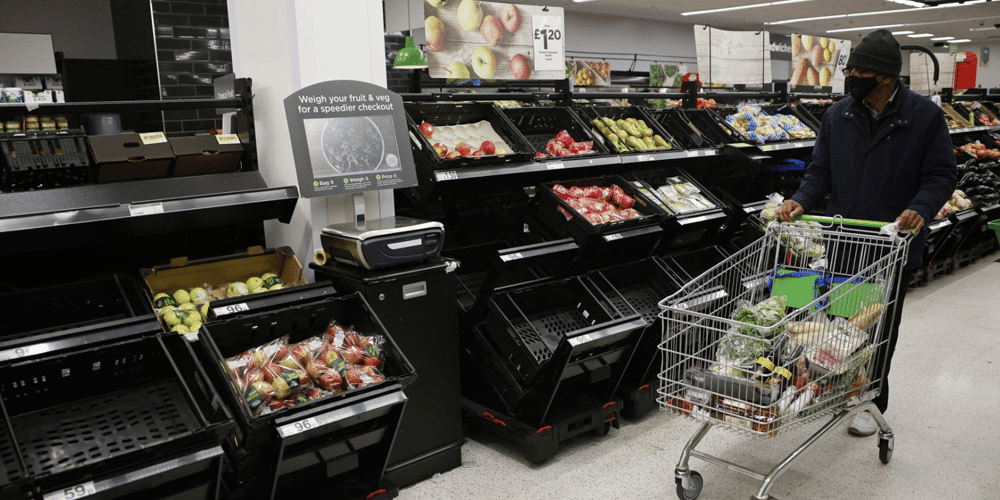UNITED KINGDOM — Asda and Morrisons, two major supermarket chains in the UK, have begun rationing fresh produce items amid a shortage in supplies due to a poor harvest in Europe. Asda is currently limiting customers to three items such as peppers, lettuce and broccoli, while Morrisons has introduced a ban on more than two items from tomorrow, including cucumbers, tomatoes, lettuce and peppers.
The shortage has led to empty shelves in supermarkets across the country, prompting some customers to voice their frustration on social media. The supply chain issue is due to growers and suppliers in Morocco facing challenges caused by cold temperatures, heavy rain, flooding and cancelled ferries. Meanwhile, production problems in Spain have also affected the supply of fresh produce.
Industry experts predict that these issues could result in gaps on shelves in the UK, with some producers reporting the need to cut back on greenhouse numbers due to a spike in energy prices. Despite this, British producers are starting to move into the growing season, which is expected to ease long-term pressures on retailers looking for alternatives to items produced in Spain and north Africa.
In response to the supply chain challenges, Asda has introduced temporary limits on a small number of fruit and vegetable lines, while Morrisons has also restricted customer purchases of certain items. While Lidl, Tesco, and Sainsbury’s have confirmed that they are not rationing similar items, concerns remain about the impact of Brexit on supply chains.
Speaking to The Independent, the Best for Britain campaign group warned that Brexit has hit supply chains over the past few years, making UK supply chains less resilient and increasing costs for both importers and exporters. While the current shortage is not directly caused by Brexit, the group suggests that efforts should be made to remove trade friction with the EU to avoid regular shortages and empty shelves in the future.
Minette Batters, the head of the National Farmers’ Union (NFU), acknowledged the challenges facing retailers but stressed the need to avoid panic buying, which could exacerbate the situation. She highlighted that there would likely be challenges with availability of some food items, but expressed confidence that British producers moving into the growing season would help ease some of the pressure on retailers.
While the shortage of fresh produce items in UK supermarkets is likely to last for a few weeks, there is optimism that the situation will improve as British producers begin to move into the growing season.








